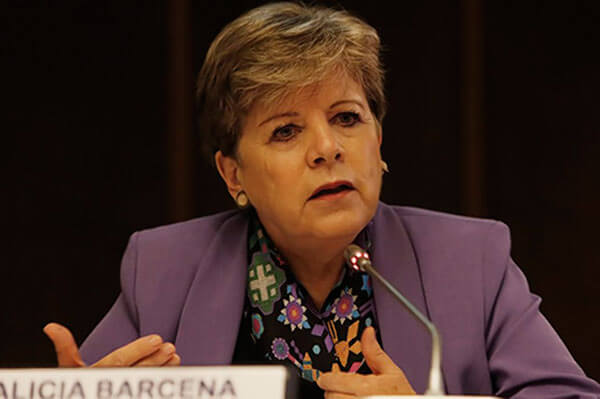The Economic Commission for Latin America and the Caribbean has called on the regional countries to build a shared vision on governance of natural resources and infrastructure with an integrated and sustainable approach.
The group said this would aid in helping to close “the significant gaps that still persist in these areas.”
Executive Secretary of the regional United Nations body Alicia Bárcena is the main speaker at the opening of a High-level Regional Dialogue on the Governance of Natural Resources and Infrastructure taking place at commission headquarters in Santiago, Chile.
Commission representatives said the meeting — which is being attended by 15 ministers and also deputy ministers of energy, mining, infrastructure, the environment and natural resources from 21 Latin American and Caribbean countries — concludes on Friday.
The event marks the formal inauguration of the Governance Week on Natural Resources and Infrastructure, the group said.
“The governance of natural resources is a key element today in the development agenda of Latin America and the Caribbean since it involves reflecting upon property ownership, the means of appropriation and the distribution of the productivity earnings that they generate,” Bárcena said. “I invite you to forge a shared vision on this issue, which creates a new balance between the State, the private sector and society, and renewed opportunities for dialogue, participation, planning, and transparency.”
In her presentation, Bárcena said that it is fundamental to increase current low levels of investment in infrastructure (2.2 percent of annual gross domestic product — GDP — on average).
She said this figure is insufficient to cover countries’ needs in this area, which are projected at 5.4 percent and 8.6 percent of GDP, depending on the economic growth scenario.
“The governance of natural resources and infrastructure requires a paradigm shift and new coalitions,” Bárcena said. “It is about changing the conversation to achieve better agreements between companies, communities and society as a whole. It demands a long-term vision to move towards a sustainable future, with greater social inclusion and intergenerational equality.”
According to the senior United Nations official, the progressive structural change that the region needs, in order to shift its development paradigm, cannot be achieved without transforming the current pattern for the design and use of infrastructure for transportation, energy, water and telecommunications.
“We must change our production matrix because it is the reflection of the inequality seen in our region,” she emphasized.
Bárcena said that commission’s proposal to countries in this area includes a research program that facilitates the substantive discussion, the creation and implementation of public policy instruments that incorporate the State’s strategic and political vision on this matter, as well as actions for technical assistance, the institutionalization and systematic execution of mechanisms that facilitate regional dialogue between different actors, and the transmission of this dialogue’s conclusions to the Forum of the Countries of Latin America and the Caribbean, which will hold its first session in Mexico in April 2017.
The High-level Regional Dialogue on the Governance of Natural Resources and Infrastructure included speeches by the heads of delegation of all the countries attending, who shared reflections and experiences regarding the challenges of governance of natural resources and infrastructure in their respective nations.

















